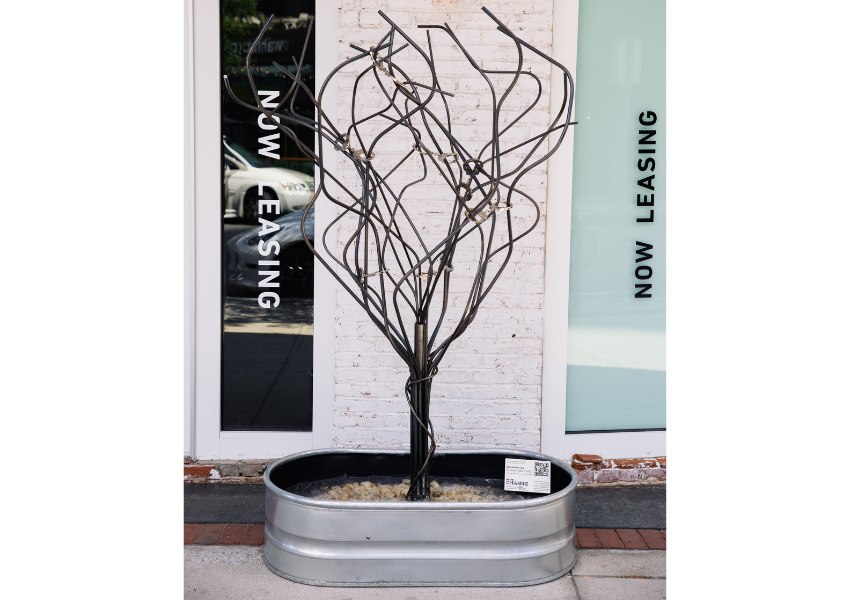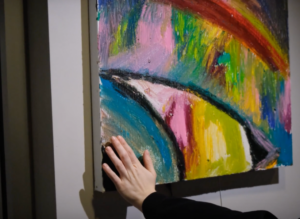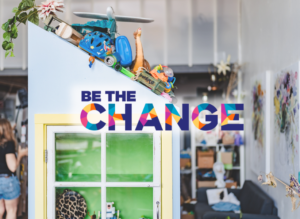As a young man, I grew to be 6 feet tall. Being a big black man in Boston, my father worried about me because of his own experiences with the police. He was right to worry.
I was targeted, harassed, assaulted, detained, and ultimately thoroughly traumatized.
The worst part for me was that I was a pretty good kid trying my best to avoid the gangs and drugs surrounding me. I was working towards a bright future but was punished by the police for my appearance. It appeared I was on a one-way street leading toward incarceration. It was hard to stay optimistic when I was being targeted by both criminals and the police.
These life experiences led Jason to create “Our Family Tree,” his 2022 Be the Change Boston sculpture.
Jason hand-shaped metal rebar to create this tree which is saddled with seven handcuffs, representing the community and family-wide impact of incarceration.
Jason created this piece in honor of his father and his kids.
JArts’ mission is to curate, celebrate, and build community around the diverse world of Jewish arts, culture, and creative expression. Our vision is of a more connected, engaged, and tolerant world inspired by Jewish arts and culture.
Reflections
Racial Bias in the Criminal Justice System
As of 2001, one of every three Black boys born in that year could expect to go to prison in his lifetime, as could one of every six Latinos—compared to one of every seventeen White boys. Racial and ethnic disparities among women are less substantial than among men but remain prevalent.
African Americans were incarcerated in local jails at a rate 3.5 times that of non-Hispanic White people in 2016.
Although African Americans and Latinos comprise 29% of the U.S. population, they make up 57% of the U.S. prison population.
Prosecutors are more likely to charge people of color with crimes that carry heavier sentences than white people. Federal prosecutors, for example, are twice as likely to charge African Americans with offenses that carry a mandatory minimum sentence than similarly situated white people.
Source: “Report to the United Nations on Racial Disparities in the U.S. Criminal Justice System”. April 29, 2019.
Black Americans are more likely than White Americans to be arrested. Once arrested, they are more likely to be convicted, and once convicted, they are more likely to experience lengthy prison sentences. What do you think are some of the causes of this inequity and how can it be rectified?
Try to imagine that you were targeted by the justice system because of how you look. How would that make you feel? What impact would it have on your life?
Many experts have identified changes to policing policies that can help address this issue. How can you hold your local elected officials and police departments accountable?
Want more?
Get curated JewishArts.org content in your inbox






